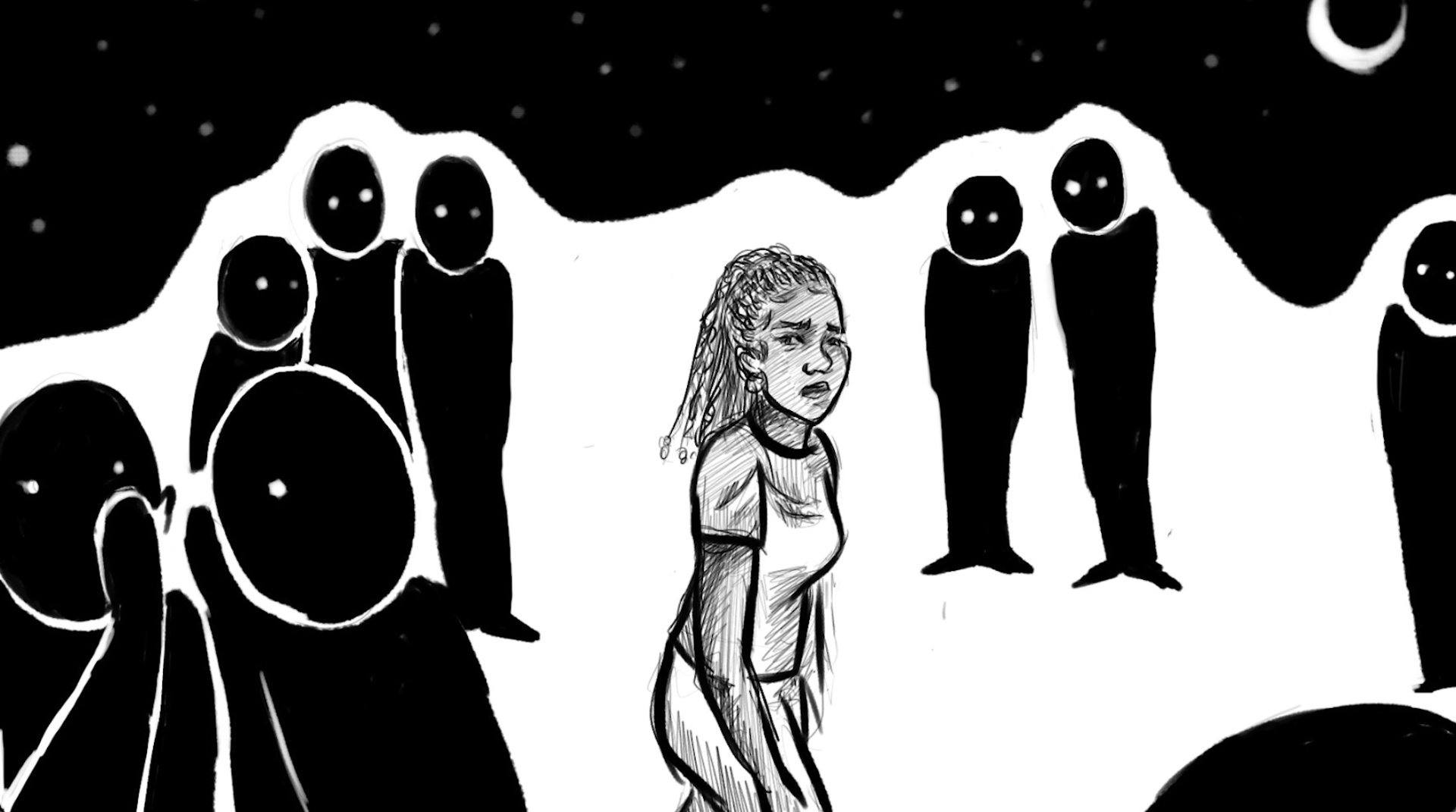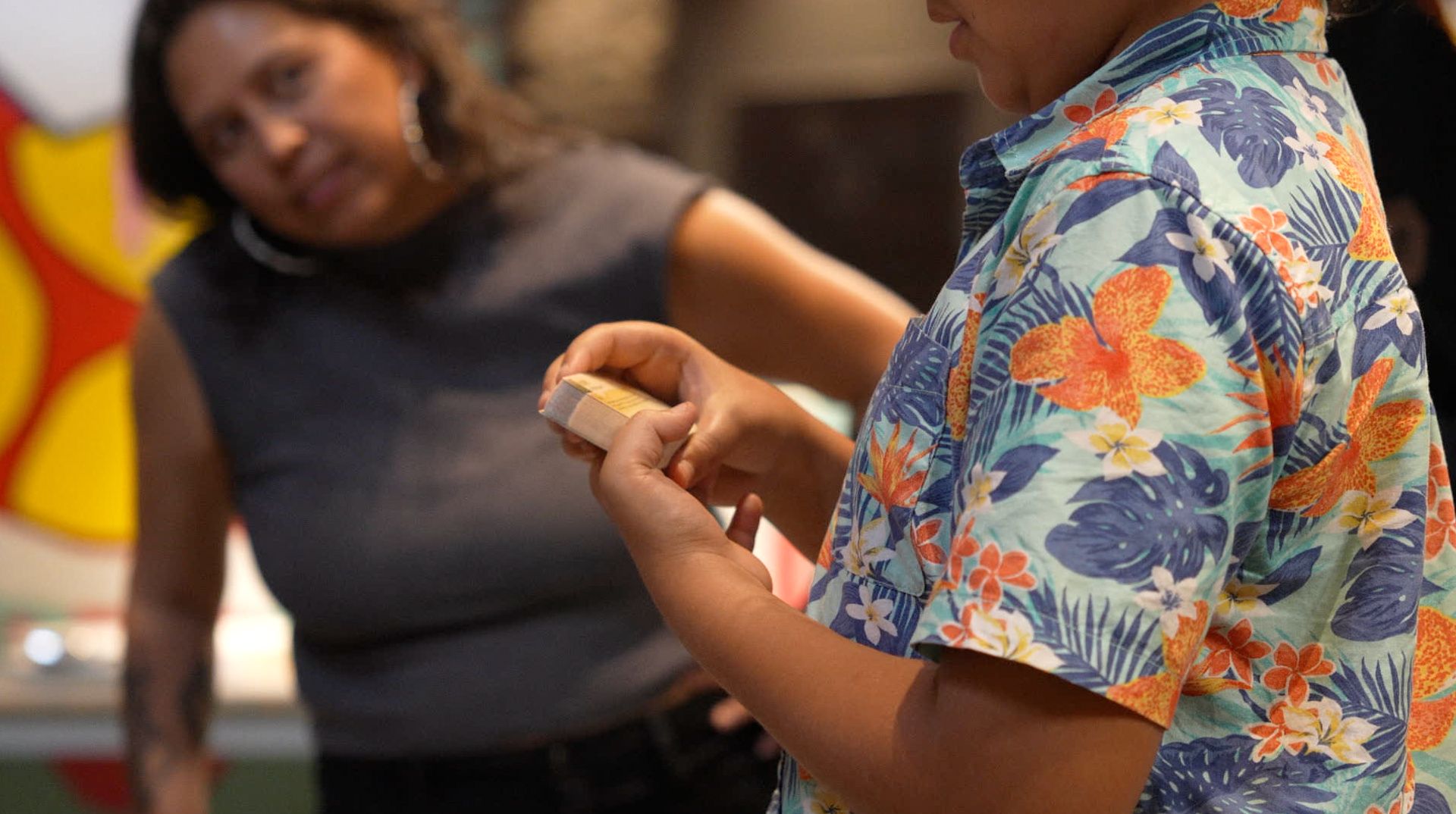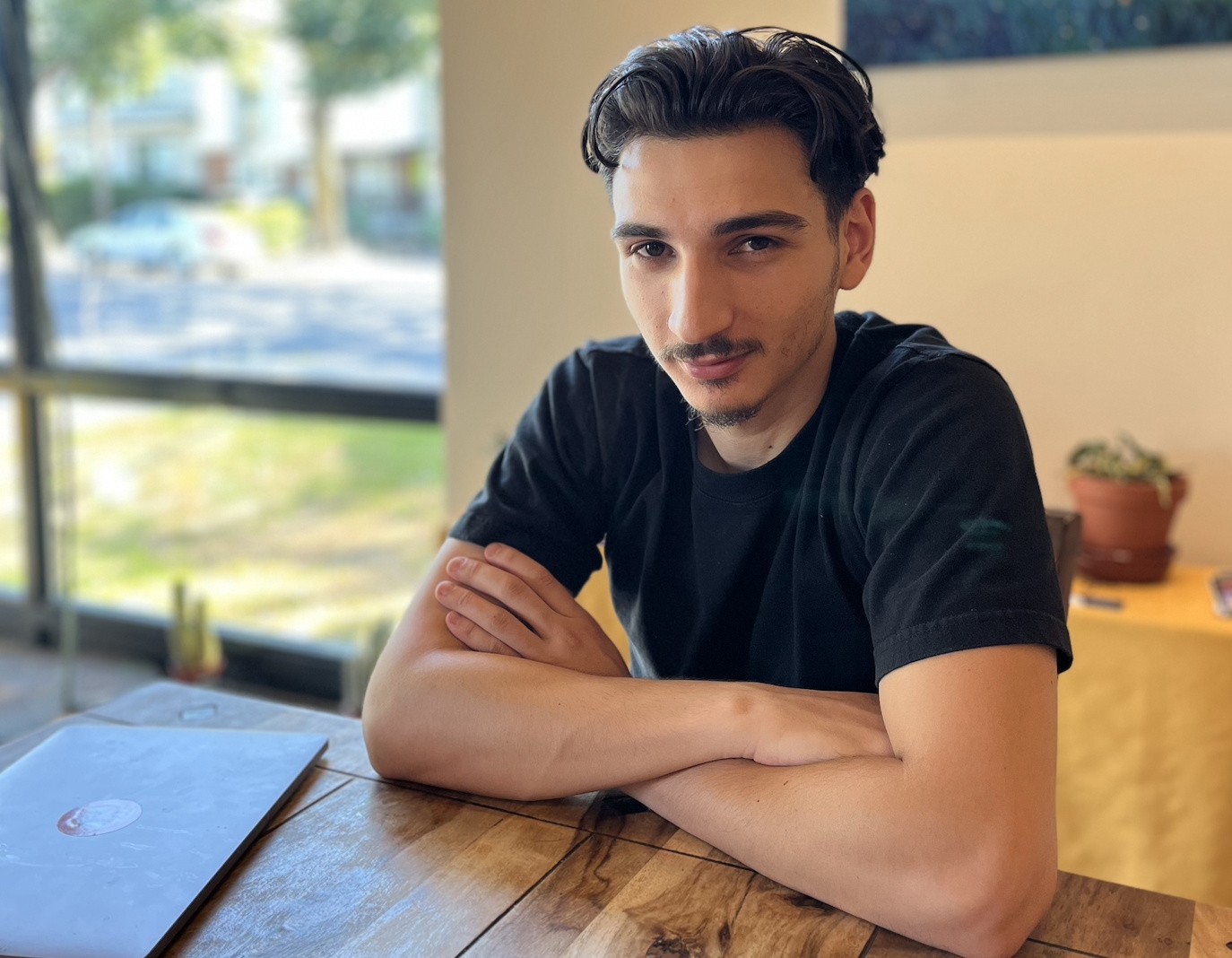Kemba Mitchell, a consultant in anti-black racism, has been offering workshops for teachers and students since 2020. La Converse met with this anti-racist strategy consultant, but also with a teacher, a student and a student's parent to better understand the need for this approach.
As the first day of school approaches, some are enjoying their last days of vacation, while others are rushing to get their school supplies ready. But for some students, black students, anxiety is on the rise. Indeed, school remains a place where they suffer discrimination.
Sarah*, a 17-year-old black teenager with curly hair, has experienced all of these discriminations. A former middle school and minority student, she reports the following: “I would not say that my teachers were openly or consciously racist, but with only 4 out of 60 black students in my program, we felt a difference in treatment due to some prejudices,” she explains. Especially the prejudice that black people are loud and annoying. As soon as there was noise in the classroom, we were always the first to be pointed at by the teachers, as if we were the problem.
Teachers tended, she adds, to raise their voices more easily with black students than with the rest of their classmates, regardless of whether they were white or racialized.
The teenager waited several years before daring to discuss this subject with the teachers concerned. And the return was not what she expected.
“My feelings were not taken into consideration when I explained to my teachers that I perceived a distinction in the way they acted with me and with my classmates.” She continues: “When quarrelling with other students, white students got by easily, while I faced much more severe sanctions; they did not hesitate to quickly exclude me.”
Teachers' contempt for racist student violence
Shana*, mother of Leslie*, an 11-year-old girl, meets us at Place Ville Marie in the middle of summer. The sun is shining, the flowers are coloring the city, but Shana's face is marked by sadness as she shares her daughter's testimony with us.
“She was pushed and abused because she has black skin,” she begins, touching her wrist nervously to contain her emotions. Leslie has just finished her last year of elementary school at a school where she represented the minority. Despite a fresh start in high school, the memory of this school year is heavy for this pre-teen.
Shana continues, with tears in her eyes: “The students said things to her like, “You're a monkey, go home.” They pushed her in front of everyone, it was a shame, again and again.” The mother tried to intervene by contacting the school to have the situation examined and the children responsible identified.
“At the beginning, the director told me that the school was going to take care of it, that he was sorry,” she explains. But the bullying didn't stop. “Other students started saying horrible things, like, “Go get killed, you're ugly.” The insults got worse by the day, and the school did nothing. I called and asked questions, but there was never a follow-up. It was total silence.”
Desperate, Leslie's mother ended up filing a complaint with the Commission des Droits de la Personne et des Droits de la Jeunesse in February 2024. “It was too much. It was becoming dangerous for my daughter. She had even started to tear her skin off,” she confides with emotion.
To date, it is still awaiting the Commission's decision. However, Shana believes that the repercussions of this harassment go beyond the walls of the school. The mom remembers the day she and her daughter were invited to a cooking event at a friends' house. Leslie, seeing white children, refused to take off her coat, despite the heat. “She was so afraid that they would laugh at her skin, that they would call her dirty,” Shana says, her voice broken.
“She asked us, 'Why are black people suffering all these atrocities? ' ” says Shana, taking a breath. “What I don't understand is that we grew up in Ireland, surrounded by diversity. But here, in Montreal, this ordinary racism and violence have marked her to the point that she now isolates herself and is wary of other children,” she confides, her eyes turned to the ground.
Fighting anti-black racism without talking about anti-racism?
In order to prevent children like Leslie and Sarah from suffering the same fate, Kemba Mitchell started consulting on anti-racist strategies in schools in 2020.
“Anti-Black racism affects our children in school in a number of ways: through the way teachers talk to them because of their implicit biases, through disproportionate suspensions and expulsions, and through the lack of role models in schools,” begins Kemba Mitchell. Traffic at the end of the day prevented us from meeting her in person. It is therefore on a screen that we discover her face: a bright smile, underlined by an assurance that can be felt.
Since 2008, the Equity, Diversity and Inclusion (EDI) approach has prompted some reforms including the educational environment, in particular by replacing catechism and Protestantism courses with the “Ethics and Religious Culture” course; the objective is to eradicate all forms of discrimination in schools through this course. But according to Kemba Mitchell, the change remains superficial because it does not fully address the nature of racism.
“I don't work in schools to conduct workshops on EDI. I am tackling the problem head-on and am particularly focused on anti-black racism,” continues the consultant.
His mission? Show teachers and then students how unconscious biases against Black communities are perpetuated in the school environment. To do this, the anti-racism strategy consultant uses case studies based on real events or fictional stories to help teachers and students realize their privileges.
“In my work, I approach the issue of race by explaining its history and its construction in North America. When I explain that race was created to divide, justify the enslavement of Africans, and legitimize the colonization and murders of indigenous peoples, I am also explaining how today we are all victims of racism. Some of us are on the side of unwarranted privilege, and some are not,” she summarizes. My aim is not to point fingers at professors by saying, “Yes, you are racist! ”, but rather to show the unconscious biases that some professors may have.”
“I started this initiative to meet the needs I had observed”
After 17 years of customer support and project management, Kemba Mitchell has seen her career take a new turn in the last four years. It was in 2020, when she applied for the position of community development officer at Sarah's high school where she studied, that Kemba realized the urgency of educating young and old about anti-black racism.
“In this high school, there were no black authority figures except me,” Kemba continues. So the simple fact that I was there allowed the few black students who were there to feel safe and to finally have representation. They felt comfortable with me and were more open about their experiences at school. I then relayed what they shared with me to the director to make him understand that there were actions to be taken.”
During these early years as a community development officer, Kemba also joined the school's equity, diversity, and inclusion working group. “We worked for about a year to make recommendations to the school board who approved them. But so far they have not yet been implemented in schools,” she says, visibly annoyed. The reason for the delay? She doesn't know that.
Faced with what she considers to be a lack of responsiveness, she takes matters into her own hands, and embarks on strategic consultations against anti-black racism in parallel with her position as a community officer. “I launched this initiative in response to the needs I observed,” she insists, determined.
Today, Kemba is regularly invited to schools in Greater Montreal for these interventions “I am often called after verbally violent incidents in schools. So far, word-of-mouth has been very effective,” she proudly tells us.
The anti-racist approach: a way to educate students and teachers
Daniel*, who is of Latin-Quebec origin, is a professor of history-geography and ethics and religious culture at Côte Saint-Luc. At her high school, racialized teachers are numerous and diverse. However, he sees disparities in the treatment of black students.
“What I see is that if you are black, you will have more problems at school for a variety of reasons, because we live in a mostly white system. A white Quebec student really has to do a lot, unlike a black student, to be suspended or expelled, for example. There are a lot of unconscious biases, and although I am mixed myself, I have also had some prejudices,” he admits.
Despite eight years of experience as a teacher in several schools, Daniel admits that he has never received training on the EDI approach. “It's a bit of a jungle; each teacher is left to his own devices about EDI. Everyone talks about it as they want... or not,” he says. Then, he goes on: “There is no follow-up, no one checks whether the concepts discussed at the beginning of the year have been implemented or not.”
“Honestly, I don't know if the current priority in education is to do training on this. We are more on the entry notes, absences, intervention plans, but on the Equity, Diversity, Inclusion side, we are still waiting...”
So, to address the issue of racism, Daniel relies on his personal knowledge as well as on his experiences. “I am mixed, so it's easier to teach when you know a bit about diversity, but that's not the case for everyone,” admits the professor.
According to him, anti-racism training would be welcome in schools: “Many teachers find it difficult to talk about things that are taboo, for fear of being judged or not understood, or of being misinterpreted. Students, whether they experience racism or commit racism, know that racism is everywhere. They just don't know how to explain it, see it, or understand it. Sometimes racism is trivialized, sometimes it is blatant. Clarifications would help.”
Although diversity is now well rooted in the school landscape in some neighborhoods in Montreal, Daniel believes that school is still not a place for inclusion. For him, the issue of racism in the education system is not limited to the attitude of some teachers, but also extends to school curricula.
“It is clearly white history that we are teaching”
Starting in September, the Ethics and Religious Culture course will be replaced by a new program entitled Quebec culture and citizenship, a title that makes the professor laugh softly. “This course is going to remove religion from the curriculum. But in a context where there are a lot of immigrants, that just goes against inclusion. Here, the aim is only to strengthen Quebec's identity,” he says. But in general, I could say that the history or geography program is racist, because it's clearly white history that we're teaching.”
Kemba Mitchell agrees. “Teachers don't spread hate, but courses that focus on Europe send a message to people who don't fit the European profile that they're not important or included — and that has an impact on their self-esteem. This also explains why black students fail more often than others,” she says in a sigh. Then, she continues, “And while they have certain aspirations, the implicit biases of educators mean that they can be directed in another direction.”
Workshops by Black people, for Black people, for equity for all
In particular, this observation prompted the black anti-racism consultant to offer webinars to black students, who she considers to be less informed than the rest of the students. “It is not that they are not given certain information, but they are less informed about future prospects because, often, subconsciously, they do not feel concerned. Either because they had no role models, or because they were reduced to something else.”
Among the consultations offered by Kemba, some webinars are offered free of charge to the black community to “fill some gaps in the education system,” she explains. In particular, it organizes webinars on school grants.
“I know there are career counsellors, but they're just kind of like, 'Here are our scholarships, apply. ' But because of what's going on in schools, black students often don't feel concerned. They don't even make appointments with guidance counsellors. Whether it's because they think they can't get these scholarships or because they think it's too much work, these students each have their own reasons for not even trying. But not trying is unacceptable,” she drops sharply.
She recalls that scholarships are not only financial support, but also a springboard to wider opportunities: “Some offer opportunities that allow you to travel abroad or to another province. They can provide opportunities to network with different businesses or communities. So it's not just about the money, it's also an opportunity to write really creative and unique cover letters.”
The consultant also focuses on other practical aspects, such as writing a good resume and building relationships with teachers. “An essential step in getting references,” she points out.
Through her anti-racism strategy consultations and webinars, Kemba Mitchell strives to fill the lack of resources and support that Black students face in Montreal. An initiative that is gradually gaining in popularity. “This fall, several schools want me to come back, and new ones are already asking me to visit them,” she confides proudly to us before leaving us.
* The interviews with Kemba Mitchell and Sarah have been translated from English.
** For security reasons and to protect their anonymity, the names of Sarah, Shana, Leslie, and Daniel have been changed.








%20(1).jpg)
.jpg)
.jpg)